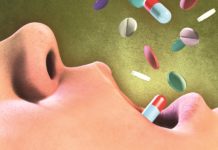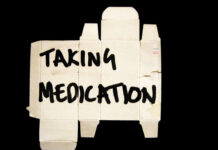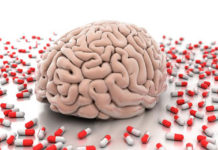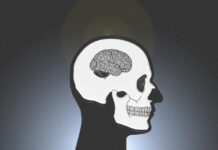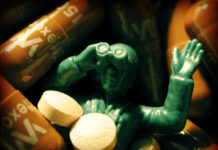Epilepsy Drugs Can Induce Psychosis in Some Patients, Study Finds
In this month’s issue of the journal Brain a new study investigates whether the drugs prescribed to control seizures can increase the risk of...
What It’s Like to Be Involuntarily Committed
Ten years after being fired for taking a mental health leave after the Virginia Tech massacre, I was diagnosed as "schizophrenic" and involuntarily committed to a hospital. Now I have a job and a life, but I'm still forced to take drugs and report to a social worker.
Timberrr! Psychiatry’s Evidence Base For Antipsychotics Comes Crashing to the Ground
When I wrote Anatomy of an Epidemic, one of my foremost hopes was that it would prompt mainstream researchers to revisit the scientific literature. Was there evidence that any class of psychiatric medications—antipsychotics, antidepressants, stimulants, benzodiazepines, and so forth—provided a long-term benefit? Now epidemiologists at Columbia University and City College of New York have reported that they have done such an investigation about antipsychotics, and their bottom-line finding can be summed up in this way: Psychiatry’s “evidence base” for long-term use of these drugs does not exist.
Researchers Address Dangers of Polypharmacy and Inappropriate Medication Use
A new special issue brings together articles exploring the harmful effects of simultaneous multiple medication use.
Exploring Psychiatry’s “Black Hole”: The International Institute on Psychiatric Drug Withdrawal
When Carina Håkansson sent out an invitation for a symposium on "Pharmaceuticals: Risks and Alternatives," some of the world's top scientists, along with experts-by-experience, came from 13 countries to explore better ways to respond to people in crisis.
Danish Study Finds Better 10-year Outcomes in Patients Off Antipsychotics
Study finds that 74% of patients with a psychotic disorder off antipsychotics at end of 10 years are in remission.
Service-Users See Long-Term Antipsychotic Use as Compromising Recovery, Review Finds
A new meta-review examines the experiences of antipsychotic drugs use among people diagnosed with a psychotic disorder.
Antipsychotics and Chronic Illness
A. The Chronicity Problem Becomes Apparent (1960s-1979s)
It seems paradoxical that drugs that ameliorate acute psychotic symptoms over the short term will increase the likelihood...
Patients Complain about Antipsychotic Medications Inducing “Zombie-like” State
People who take antipsychotic medications experience many side effects which have "major disruptive impact on their lives," according to research in the Journal of Mental Health Nursing.
Study Finds Improved Functioning for ‘Schizophrenia’ Without Antipsychotics
Long-term treatment with antipsychotic drugs is currently considered the standard treatment for patients diagnosed with ‘schizophrenia.’ A new study challenges this practice, however. The...
The Dopamine Hypothesis of Schizophrenia – Version III
The Division of Clinical Psychology of the British Psychological Society published a paper titled Understanding Psychosis and Schizophrenia. The central theme of the paper is that the condition known as psychosis is better understood as a response to adverse life events rather than as a symptom of neurological pathology. The paper was wide-ranging and insightful and, predictably, drew support from most of us on this side of the issue and criticism from psychiatry. Section 12 of the paper is headed "Medication" and under the subheading "Key Points" you'll find this quote: "[Antipsychotic] drugs appear to have a general rather than a specific effect: there is little evidence that they are correcting an underlying biochemical abnormality."
Meta-Analysis Ties Gray Matter Loss to Antipsychotic Dose
Antipsychotics are currently the predominant treatment for individuals diagnosed with schizophrenia, but there is an accumulating body of research that links the use of these drugs to structural abnormalities in the brain. A recent meta-analysis suggests that gray matter loss in the brain may depend on the dose and class of the antipsychotic.
New Research Suggests Brain Abnormalities in ‘Schizophrenia’ May Result From Antipsychotics
Study finds that reduced cortical thickness and brain surface area associated with 'schizophrenia' may result from antipsychotic drug use.
“FDA Rejects Creepy Abilify Surveillance Pill”
The FDA has rejected the drug/device combination designed to monitor patient adherence with Abilify from Otsuka Pharmaceutical and Proteus Digital Health. Just last week...
Olanzapine Can Cause Serious Skin Reaction, FDA Warns
The US FDA has issued a new warning for the atypical antipsychotic Olanzapine, also known by the brand names Zyprexa and Symbyax. The agency...
Inconvenient Truths About Antipsychotics: A Response to Goff et al
The most worrying thing about the Goff et al paper is the minimisation of the evidence that antipsychotics produce brain shrinkage. There are no studies that show progressive brain changes in people diagnosed with schizophrenia or psychosis in the absence of antipsychotic treatment.
New Research on Patient-Centered Deprescribing for Antipsychotics
Researchers review the risks and benefits of deprescribing from antipsychotic drugs and advocate for a patient-centered approach to tapering.
Long-Term Antipsychotics: Making Sense of the Evidence in the Light of the Dutch Follow-Up...
In the 1950s, when the drugs we now call ‘antipsychotics’ first came along, psychiatrists recognised that they were toxic substances that happened to have the ability to suppress thoughts and emotions without simply putting people to sleep in the way the old sedatives did. The mental restriction the drugs produced was noted to be part of a general state of physical and mental inhibition that at extremes resembled Parkinson’s disease. Early psychiatrists didn’t doubt that this state of neurological suppression was potentially damaging to the brain.
The Astonishing Zyprexa Cover-Up
Back in 2006, when my son Franklin was in his late twenties and living in a group home in the Boston area, he refused to take Clozaril any more because of the required bi-weekly blood draws. His doctor prescribed Zyprexa as a substitute, and Frank suddenly began to gain weight ... a lot of weight. Later, I would learn that UCLA psychiatrist Dr. William Wirshing had said of Zyprexa prior to its 1996 approval by the FDA: “It is just un-stinkin’-believable. It is the best drug for gaining weight I’ve ever seen.” The doctor indicated that taking ten milligrams of the medication was equivalent to ingesting 1,500 extra calories per day. My outrage knew no bounds.
A Guide to Long-Acting Neuroleptics: Education or Promotion?
The National Council for Behavioral Health has released a new pamphlet titled “Guide to Long-Acting Medications for Providers and Organizations.” By downplaying some aspects of the available science, the pamphlet implicitly acts as a promotional tool for the pharmaceutical industry.
Safety Analysis Weighs Harms and Benefits of Antipsychotic Drugs
The researchers find that the drug effects for reducing psychosis are small and that treatment failure and severe side effects are common.
The Fat Lady Has Sung
In his latest paper, Martin Harrow focuses psychiatry's attention on a very specific question: Do antipsychotic drugs provide a long-term benefit as a treatment for psychotic symptoms? His findings are consistent with a larger body of evidence that all point to the same conclusion, which is that antipsychotics fail that efficacy test. And thus, I think it is fair to say that on this issue, the Fat Lady Has Sung, Psychiatry needs to rethink its use of these drugs.
Outcomes in the Era of Atypical Antipsychotics
Once second-generation antipsychotic drugs came on the market (which are known as “atypicals”), there were claims by psychiatric researchers that they would lead to...
21 Dead in Japan From New Johnson & Johnson Antipsychotic
The death toll among Japanese citizens who have taken Johnson & Johnson's subsidiary Janssen's schizophrenia drug Xeplion has climbed to 21, from 17 on...
Daughter of a Psychiatrist
Here I was, 15 years old and already in a long-term treatment facility. I was, on paper: crazy! This entire time, all the adults in my life had been speaking for me. I never felt like I was any of the things they said, but I went along with it. What else could I have done? Every time I rebelled, it only confirmed to my mother what she thought of me.




